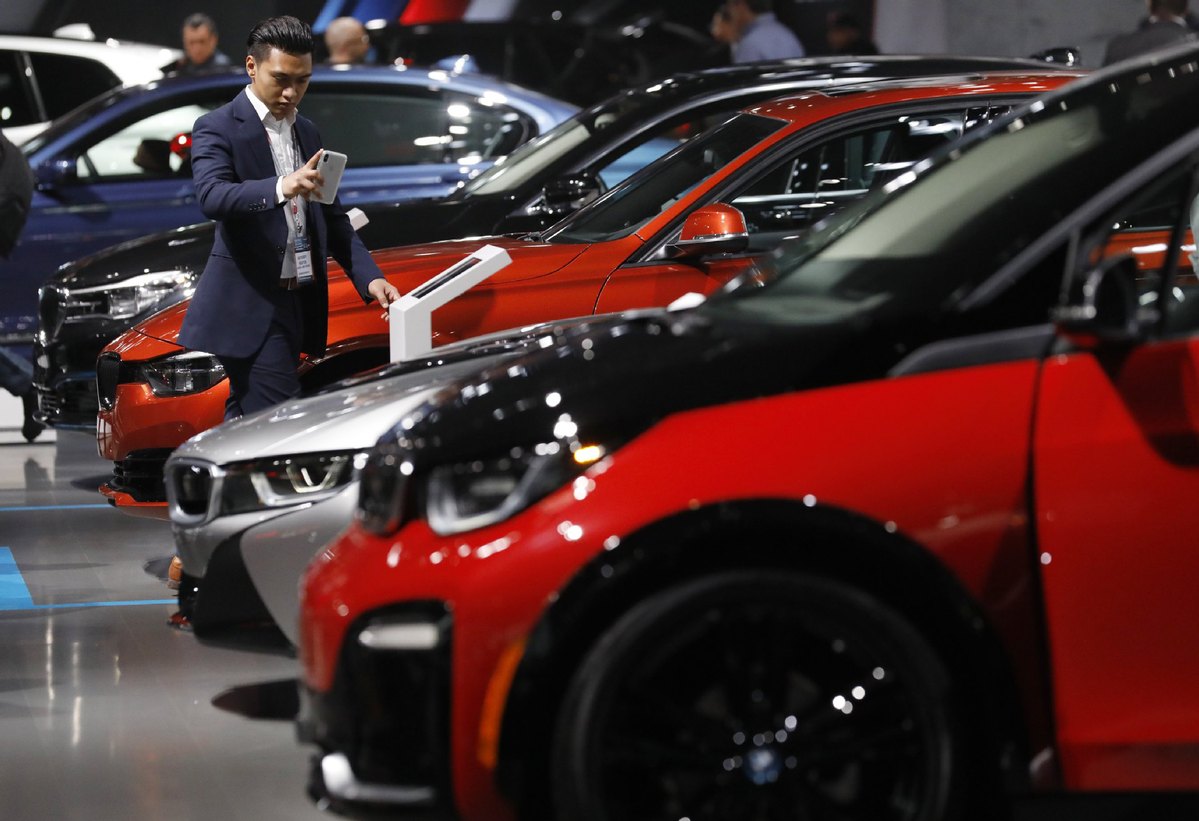Auto companies most at risk to Chinese tariff: Analysts


BMW, Daimler, the maker of Mercedes-Benz, and Tesla are the automakers most vulnerable if China raises tariffs on imported vehicles made in the US, analysts said.
"China exports comprise 38 percent of total Daimler exports from the United States, 31 percent for BMW, and 24 percent for Tesla," Kristin Dziczek of the Center for Automotive Research in Ann Arbor, Michigan, wrote in an email Thursday.
If the tariffs go into effect, it could mean production cuts at BMW and Mercedes-Benz-maker Daimler plants in South Carolina and Alabama, respectively.
"Ford has some issues because the Explorer comes from Chicago and most if not all Lincolns come from the US. These are some of the most profitable vehicles it sells so higher prices hurt a lot especially relative to the Germans, GM and VW with factories in China more than Ford," David Whiston, auto analyst for Morningstar Inc said in an email.
American vehicle exports to China face a 25 percent tariff. China has suggested it would add another 25 percent to counter proposed US tariffs on Chinese exports. The US imposes a 2.5 percent tariff on imported cars and 25 percent tariff on imported trucks from World Trade Organization members and with the proposed tariffs on China these rates would go to 27.5 percent and 50 percent said Dziczek.
Elon Musk's Tesla faces a major Chinese tariff risk because China is its second-largest market by revenue last year and it makes all its vehicles for China in the US, noted Whiston.
In a research note, Brian Johnson of Barclays said a base Tesla Model S 100D in the US costs $94,000 while the same vehicle in China today costs about 931,000 yuan or $148,000 before the added tariff. "While these steep import tariffs are part of the upper-end luxury market (and in some respects add to the prestige factor for luxury cars), for lower-luxury vehicles than the Model 3 a 50 percent premium would be significant," he said.
The tit-for-tat auto trade dispute may also affect plans by Ford to move production of several models, notably the Focus, to China for export to the US.
Whiston said it's too early for Ford to reverse course on the Focus "but if they think the US were to have a large tariff in place for a long time then I don't see how you can keep exporting from China to the US and be competitive against other compacts made in the States such as the Chevy Cruze, Toyota Corolla, and Honda Civic."
In addition to the Focus, Ford was planning to bring in the Mondeo and MKZ from China; totaling about 300,000 units a year by 2022 said Dziczek. "It seems the company might re-examine these plans should these tariffs play out," she added.
































